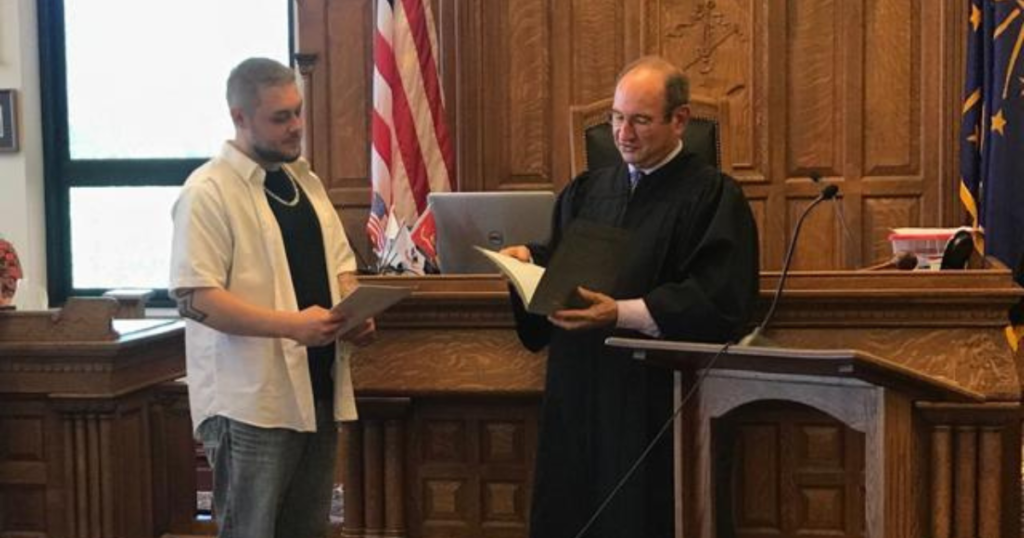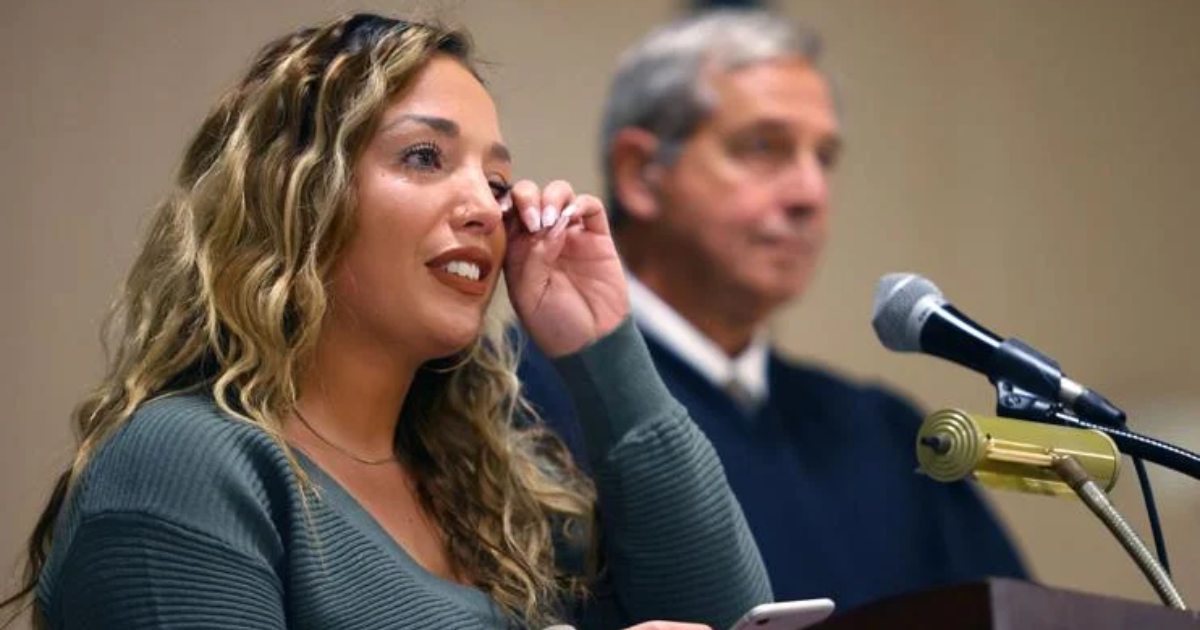If you’re a part of the one in 12 Indiana residents (nearly half a million Hoosiers) who meet the criteria for substance use disorder (SUD), your struggles with drugs or alcohol might cause you to do things you wouldn’t normally do. You might engage in illegal activities that could result in serious consequences, like jail or prison time. However, if you face a drug-related criminal charge and meet certain requirements, you may be eligible to enter a court alcohol and drug program (also known as drug court) within Indiana’s criminal justice system rather than spend time behind bars.
Related: What is Court-Ordered Rehab?
A somewhat intensive program, drug court requires participants to maintain recovery, take on responsibilities, and work towards healthy lifestyle changes. Under the supervision and authority of a judge, a participant’s progress is closely monitored. The ultimate aim of drug courts in Indiana is to reduce crime and affect real, positive change in people’s lives.
“This was my shot to change my life around,” Stephanie Hollingsworth told a Kokomo Tribune reporter on the day she graduated from Howard County Drug Court.
Hollingsworth was arrested for possession of narcotics in 2020 and struggled with addiction for six years.
“It’s the hardest thing I’ve ever done, but it’s the best thing that ever happened to me,” she said. “This program has humbled me and given me a complete structure in my life. It’s really just retrained my brain.”

(File photo by The Herald Republican)
Operated in 55 courts across the state of Indiana
Indiana operates these restorative programs for residents with substance use problems in approximately 55 circuit, superior, county and city courts in the state. Indiana drug courts also offer the support and resources needed to help participants recover from their addictions. Criminal offenders in some Indiana counties and jurisdictions can have their charges dismissed if they complete a drug court program.
“The drug court requires that you make a lifestyle change,” said one former participant in Marion County’s Drug Treatment Court diversion program. “You have to slowly wean yourself off the people you used to hang with, who use drugs.”
Who is eligible for drug court in Indiana?
You may be eligible for one of Indiana’s drug court programs if:
- Your criminal offense was nonviolent
- You have no history of violent crimes or forcible felonies
- You have no history of offenses involving firearms
- You have no history of detainers, warrants, parole obligations or probation violations in any other jurisdictions in Indiana
How Indiana drug courts work
Drug courts offer a combination of accountability and substance use treatment. They help offenders avoid jail or prison and remain in their communities. To do so, eligible participants are expected to meet certain requirements to graduate, including:
- Regular court appearances
- Frequent drug testing
- Complete addiction treatment programs
Drug courts in Indiana typically give participants the support and resources they need to overcome their substance dependency, restore their lives and avoid future arrests.
Related: Indiana University Offering Free Online Courses to Tackle Stigma of Addiction
How to graduate from Indiana drug courts
Participants in Indiana drug courts are typically assigned a case manager or probation officer. They may be required to complete an inpatient rehab program or therapy session, undergo regular drug screening and receive resources to help them find housing and employment.
To graduate from a drug court program, participants must usually:
- Spend a minimum of 12 months in the program and successfully complete no less than three phases (set by the jurisdiction or county court)
- Show no positive, dilute or missed drug tests throughout the program
- Develop a plan to achieve professional/educational goals
- Pay in full all drug court costs, addiction treatment fees, and or restitution
- Remain crime-free
In some jurisdictions, participants who graduate from drug court will have their criminal charges dismissed.
@landmarkrecovery The beauty of Recovery! #recoveryisbeautiful #recoveryisworthit #recoverytiktoks #sobertiktoks #lifeinrecovery #youareworthit #soberlifestyle ♬ kodak catching paper planes by vatolocz – vatolocz !
Looking for addiction recovery resources in Indiana?
If you or a loved one needs continued recovery support after graduating from drug court, you could benefit from counseling sessions at an outpatient rehab program. Call 888-448-0302 today for more information on treatment programs at Landmark Recovery.
For individuals who live in or around Indiana, visit one of our rehab facilities in the following communities:

Choose Recovery Over Addiction
We're here 24/7 to help you get the care you need to live life on your terms, without drugs or alcohol. Talk to our recovery specialists today and learn about our integrated treatment programs.




